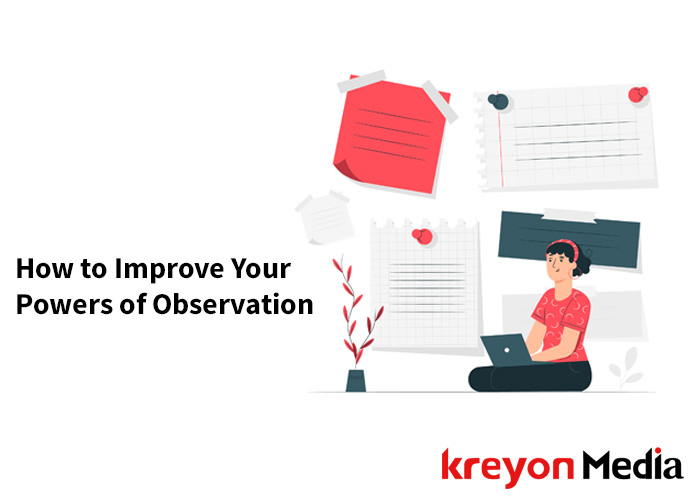
The powers of observation can be defined simply as your ability to notice & pay attention to things around you. Some people are gifted with the ability to notice things deeply and gain deep insights just by observing their surroundings.
Deep observation is a great skill in an age where people are grappling for focus. It can make a big difference in your life, whether it is your profession or personal relationships.
There is a famous anecdote about Louis Agassiz, Swiss biologist. He placed a fish specimen on the table in front of his student. His student was amused when Agassiz said, “Write a description of it. Find out what you can without damaging the specimen. When I think that you have done the work I will question you.”
The student wrote for about an hour and felt confident that he had covered indepth details about the fish specimen. But, he was surprised when Louis Agassiz didn’t see him that day. His teacher did not come the next day & several days after that. One week passed and then the student realised Louis Agassiz wanted him to observe the fish more closely.
The student started observing the finer details and began to pay close attention to the fish. He noticed several things he missed previously. He noticed the scales of the fish and the patterns around them, the placement of the eyes, teeth, the shape and texture of the tooth and so on. Agassiz finally came to see his student. The student explained all that he had noticed by then. But Agassiz wasn’t impressed, he simply said, that’s not right and left the room.
The student got angry and frustrated. However, he committed to the task with new enthusiasm. He started again, watching the fish closely for 10 hours every day for the whole week. Agassiz saw the student and saw his work. He was amazed at the quality of his work.
Compare & Correlate Things

When you observe things closely and pay attention to the details, great possibilities arise. You will find opportunities that other people miss. People who are good at observing and noticing things are able to compare and correlate things easily, because they pay attention to things.
Agassiz’s student wrote, “I learnt the art of comparing objects.” How does this tooth compare to the next one? How does this scale compare to the one on the back side? How does the symmetry of the bottom half of the fish compare to that of the top half?”
Sweat Out the Details
You learn more by doing than any other way. When you sweat out the small stuff, you get ready for big things. There is no other way to train yourself. When you do the work yourself, you know what needs to be done and how.
Don’t make any assumptions. The best ideas and observations emerge when you reason things out. It is important to ask elementary questions and do your homework. Why are things as they are? How do things work? A good understanding of something enables you to improve things. When you are sharp in your observations, you can improve things around you. Deep observation is a valuable trait that can be acquired and improved by practice.
Awareness

When you do things with awareness and focus, you begin to observe things deeply. Take a few minutes everyday to pause and reflect. Notice things around you and try to capture as many details as you can. Pay attention to your surroundings whether it is people or things.
By paying attention to small details, your ability to focus increases. When attention is undivided, it yields maximum impact. By observing the small things like people, animals, buildings and landmarks etc. you can develop a certain sense of awareness. People who are mentally engrossed in themselves find it harder to notice things. But when you practice consciously, your faculties to observe deeply can be sharpened. You are at your most effective when you are in the present moment and not full of yourself.







